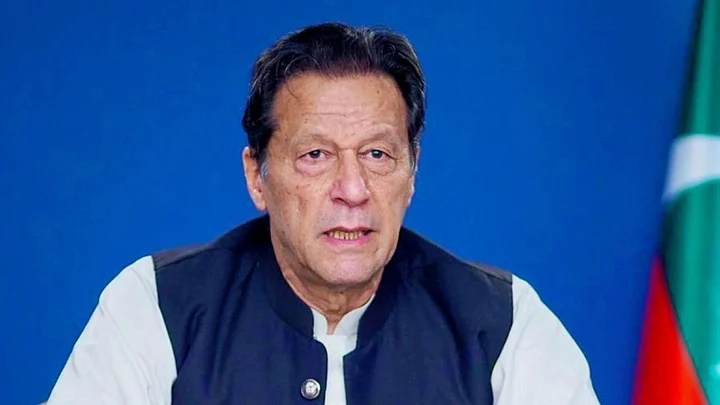Former Pakistan Prime Minister Imran Khan was arrested on Saturday, 5 August, after being found guilty by a district and sessions court in the Toshakhana case.
The court convicted Khan on charges of corruption related to the state gift repository – allegations that the Pakistan Tehreek-e-Insaf (PTI) chief has denied.
Rejecting Khan's petition to have the case dismissed, the court sentenced him to imprisonment for three years.
“He (Khan) has been found guilty of corrupt practices by hiding the benefits he (acquired) from the national exchequer willfully and intentionally. He cheated while providing information of gifts he obtained from Toshakhana which later proved to be false and inaccurate. His dishonesty has been established beyond doubt,” the court said in its judgment, as per Dawn.
Along with the term of imprisonment, Khan was also slapped with a fine of Rs 1 lakh.
Khan's PTI took to Twitter to confirm his arrest and stated that he is being moved to the Kot Lakhpat Jail in Lahore.
This comes around three months after the PTI chief's first arrest on 9 May from the premises of the Islamabad High Court in connection with the Al-Qadir Trust case.
The incident had triggered widespread violence, including attacks against the country's military installations. In response, the Shehbaz Sharif government launched a massive crackdown on PTI leaders. Almost the entire top-tier of the party's leadership had been detained amid the protests.
Khan was released on bail by the Islamabad High Court on 12 May for an initial three weeks, but got subsequent extensions.
The Toshakhana Case
The Toshakhana is a department under the control of Pakistan’s Cabinet Division, which is responsible for storing gifts and other expensive items given to public officials and under its rules, officials must report these gifts to the Cabinet Division.
While PMs or presidents can retain gifts that cost less than PKR 30,000 for themselves, more expensive gifts must be kept in the Toshakhana under Pakistani law.
If the public official wants to retain a gift, they can pay a fraction of the gift’s value, as determined by the Toshakhana evaluation committee.
While the percentage was around 20 percent of the monetary value of a gift, Imran Khan's government raised it to 50 percent after he entered office in 2018.
The allegation against Khan is that he "deliberately concealed" details of the gifts that he retained from the Toshakhana and proceeds from their reported sales when he was the prime minister of Pakistan.
(With inputs from Dawn.)
(At The Quint, we question everything. Play an active role in shaping our journalism by becoming a member today.)
